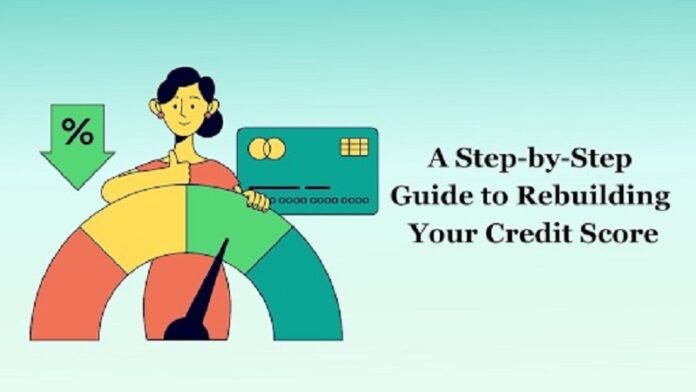Building a strong credit history can seem like a difficult task, especially if you’re starting from scratch. Without a track record of responsible borrowing and timely repayments, many lenders view applicants as risky and may deny requests for credit or charge prohibitively high-interest rates.
Fortunately, with some diligent effort, individuals in this position can take tangible steps to rebuild their credit scores. This guide will walk you through practical strategies to help renew your credit and unlock better financing options.
The Challenge of Building Credit
Fact: Without a credit history, individuals may face challenges such as higher interest rates, increased insurance premiums, and larger deposits for rentals.
The very nature of credit scores presents an obvious paradox: How can you demonstrate responsible usage of credit if no one is giving you credit in the first place, leading to potential challenges with credit health?
While the financial implications can seem daunting, the good news is there are accessible starting points to help create a favorable credit history, even if that means beginning with secured credit or leveraging a co-signer. The key is to start somewhere and lay the foundation, brick by brick.
Secured Credit Cards: Your First Step
Fact: Secured credit cards require a deposit, typically equivalent to the credit limit. Many cards require a minimum deposit of $200, but some companies offer alternative credit cards without a security deposit. Secured credit cards can provide the initial foothold into the world of credit for those with a bad credit score.
These cards require an upfront cash deposit, held as collateral by the card issuer. This design allows those with no credit or poor credit to qualify while minimizing risk for the lender.
The credit limit is generally equal to the deposit amount. Responsible use of the card demonstrates the ability to manage debt and, over time, can justify transitioning to an unsecured card with more favorable terms. When researching options, look for providers that report account activity to all three major credit bureaus and charge minimal annual fees.
Credit-Builder Products and Secured Loans
One tip is to utilize other finance-related data in your credit applications. According to Experian, 65% of lenders consider factors like rent, utilities, and phone bill payment history when making decisions. Tools like Experian Boost let you add timely utility payments to your credit file, boosting your score.
Products like credit-builder loans and secured personal loans also establish credit. Credit-builder loans work solely to build credit – you make an upfront deposit which is later returned with interest after on-time repayments. Secured personal loans also use collateral, like a savings account, to secure the loan.
When researching providers, look for reputable credit unions, community banks, and online lenders. Meeting repayment deadlines consistently shows responsibility.
Leveraging a Co-Signer
Another strategy is becoming an authorized user on someone else’s account. This adds their payment history to your credit report, helping create a credit profile. But it’s crucial the primary user has a solid history and keeps balances low. If willing, a family member or trusted friend with strong credit can be helpful when building credit.
Co-signing a card makes you equally liable for balances, so only do this with extreme care. Alternatively, becoming an authorized user on their existing card provides account access without the same liability. However, ensure the primary user diligently pays and keeps utilization low. Also, verify the card company reports authorized user activity to credit bureaus.
Getting Credit for Regular Bills
While the options above offer a direct credit-building path, you can also turn everyday expenses like rent, utilities, and phone bills into credit-enhancing opportunities. Rent reporting services will include timely payments in your credit file for a nominal fee.
With Experian Boost, linking bank accounts allows a positive payment history for utilities and phone bills to influence your credit score.
Practicing Good Credit Habits
Improving your credit score boils down to demonstrating responsible financial behaviors over time. To generate a FICO score, a credit report must show at least one account open for six months or more with recent activity reported by creditors.
From there, establishing a pattern of on-time payments and maintaining low balances relative to credit limits are essential. Also, limit credit inquiries by only applying for credit cards and loans when necessary.
Monitoring Your Credit Scores and Reports
While adopting better financial habits, be sure to monitor changes in your credit profile. Credit reports from Equifax, Experian, and Transunion compile your payment history, credit limits, open dates, and more. These differ from credit scores like your FICO score which calculates your risk level based on credit report data.
Check both thoroughly since errors could jeopardize your progress. Many banks provide free access to FICO scores for account holders.
Conclusion
By following this comprehensive, step-by-step guide and staying disciplined, people with no credit score or a bad score can rebuild their profiles and unlock better borrowing rates for cards to rebuild their credit rating.
You can patiently and effectively follow the process of credit-building to develop a great credit score. We hope this blog helps you boost your credit score fast so that you can achieve new financial goals.
Frequently Asked Questions (FAQs)
- How long does it take to rebuild your credit score after taking these steps?
While timeframes vary, staying committed to responsible habits like making timely payments and keeping account balances low can lead to noticeable credit score improvements within six months to a year. However, full credit rebuilding may take several years.
- What is the fastest way to rebuild your credit score?
Using secured credit cards and leveraging credit-builder loans to establish a positive payment history are the quickest ways to rebuild credit. Becoming an authorized user on a trustworthy co-signer’s credit card can also help build credit scores within a few months.
- Is it possible to rebuild credit on your own?
Yes, through financial discipline. Making on-time payments, keeping credit utilization low, limiting credit applications, and disputing any errors with the credit bureaus are all actions within your control that can rebuild credit over time.
Read Also : Benefits Of Hiring A Lawyer For Debt Recovery



































































